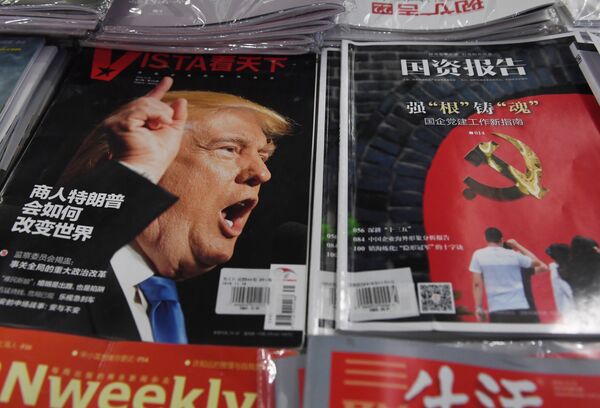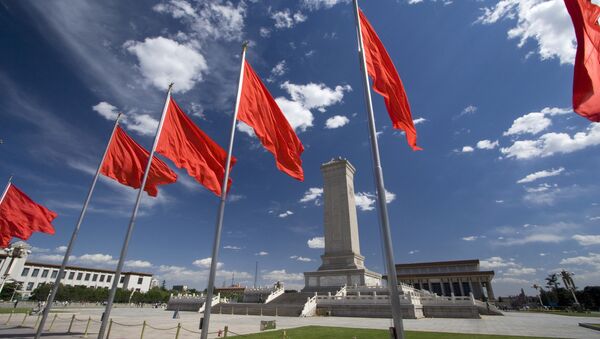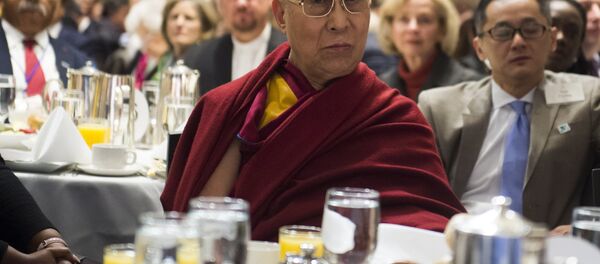China is deeply concerned by US President-elect Donald Trump's "One China" remarks; according to Andrey Karneev, Deputy Director of Institute of Asian and African Studies of Moscow State University, Trump seemingly wants to turn the Taiwan issue into a bargaining chip.
On Sunday the President-elect noted that the US didn't have to stick to the "One China" policy.
Trump's remarks followed the controversy sparked by his conversation with Taiwanese President Tsai Ing-wen on December 2.
"I don't know why we have to be bound by the one China policy unless we make a deal with China having to do with other things, including trade," Trump said in an interview with Fox News Sunday.
Addressing executives of top US companies Wednesday Cui emphasized that "national sovereignty and territorial integrity are not bargaining chips" in a veiled reference to Trump's "One China" remarks.
"Basic norms of international relations should be observed, not ignored, certainly not be seen as something you can trade off. And indeed, national sovereignty and territorial integrity are not bargaining chips. Absolutely not. I hope everybody would understand that," Cui emphasized as quoted by Reuters.
Karneev called attention to the fact that in the course of his Sunday interview with Fox News, Trump specifically criticized Beijing's unwillingness to make concessions to the US on a number of issues, including mutual trade, the situation in the South China Sea and the resolution of the North Korean nuclear problem.
In addition, Trump highlighted that he didn't see anything wrong in his short phone conversation with the Taiwanese President.
"I don't want China dictating to me… Why should some other nations be able to say I can't take a call?" Trump asked.

Karneev believes that "Trump's statements can be interpreted as a desire to turn the Taiwan issue into some kind of a bargaining chip in relations with China."
"It turns out that the US' compliance with the 'One China' policy is not unconditional, as it was initially expected [by Beijing] when the [US-Chinese] diplomatic relationship was established. Now, every time when Washington is discontent with China's position on some matter, Trump will return to the Taiwan issue and demand that China make concessions [to the US]," the Russian academic suggested.
Still, it seems that Beijing has taken the US President-elect's comments to heart.
An Fengshan, a spokesman for China's Taiwan Affairs Office, told a news conference Wednesday that any interference with the "One China" principle would impact "peace and stability in the Taiwan Strait."
"Upholding the 'one China' principle is the political basis of developing China-US relations, and is the cornerstone of peace and stability in the Taiwan Strait… If this basis is interfered with or damaged then the healthy, stable development of China-US relations is out of the question, and peace and stability in the Taiwan Strait will be seriously impacted," An underscored.
According to Karneev, Beijing will try to find out whether the US President-elect is serious about reconsidering the political basis of US-China relations before Trump's inauguration in January, 2017.



